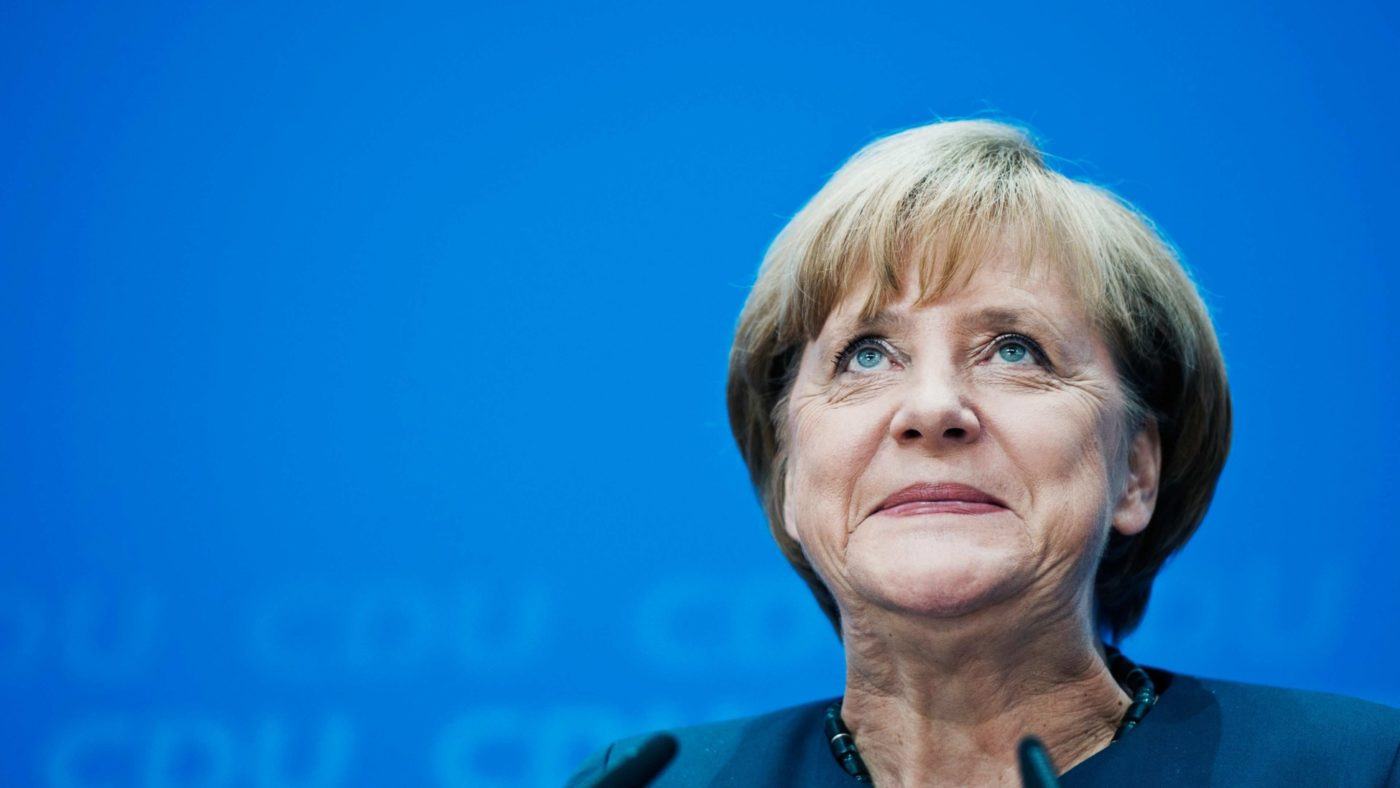Stormy weather has shifted Angela Merkel’s trip to see the US President to tomorrow; it provides the perfect metaphor for German-US relations. There are several contentious foreign policy issues, some of which have gone off the boil for now, but there is no question that when it comes to trade and commerce in particular, and the EU in general, Germany and the US are unusually worlds apart.
After Trump’s election, Merkel didn’t mince her words when she said pointedly that “Germany and America are connected by values of democracy, freedom and respect for the law and the dignity of man, independent of origin, skin colour, religion, gender, secular orientation or political views”. People think, mistakenly, that China’s President Xi Jinping sought in Davos to fill the global leadership vacuum in the wake of Trump, but Chancellor Merkel has far stronger claims.
For his part, Trump has criticised his German counterpart for “ruining Germany”, and for her policy to admit refugees. The White House’s language about Germany dovetails exactly with its broader, negative view about the EU, with which it associates German leadership.
The man credited with articulating Trump’s positions is top White House strategist, Stephen Bannon, who played a big part in hauling the “America First” rhetoric from the nationalism of the 1930s. He supports Brexit and other right-wing, anti-EU political parties in Europe, and sees the EU as an instrument of the globalism and liberalism which are anathema to the Trump presidency.
On foreign policy issues, the meeting between Merkel and Trump may not be especially confrontational. Russia is still a hot potato for Trump and his entourage but some of the pragmatists in the Administration have contrived to assure Europeans that no big changes are afoot with regard to Russia policy and the Ukraine. Similarly, earlier concerns about the US commitment to Nato, and about US policy on Iran have ebbed, for now at least.
Yet, on economic and trade issues, the two leaders may find little on which to agree about. There was never much hope that the proposal for the Transatlantic Trade and Investment Partnership would be revived, but Washington’s dislike of regional free-trade agreements in favour of a zero-sum focus on bilateral trade relations has killed it.
In this context, Germany’s €50 billion trade surplus with the US – the broader current account surplus is only slightly bigger – has become a lightning rod for US resentment. It hasn’t changed much in the last few years, and at 13 per cent of the total US trade deficit, it isn’t even that big.
Nevertheless, Trump has complained about it, and his chief trade thinker, Peter Navarro, has recently shown his naïveté by charging Berlin with using the euro to gain unfair trade advantages, and EU politicians with deliberately devaluing the Euro to gain a competitive edge.
Merkel will almost certainly want to deflect these criticisms, while also acknowledging concerns about the so-called border adjustment tax currently under consideration in the US but seen by many as both a covert form of protectionism and against the rules of the World Trade Organisation.
To help address American concerns, Merkel will be accompanied by Siemens boss, Joe Kaeser, and BMW boss, Harald Krueger, in an attempt to demonstrate to the White House what German businesses do for US output and jobs.
BMW, already singled out by Trump for possible punitive tariffs, produces more cars in its state-of-the-art Spartanburg plant in South Carolina than anywhere else – 17.6 per cent of all units worldwide – including Germany. It employs 8,000 people, and boasts almost $8 billion of investment since it was set up.
More broadly, about a third of German foreign direct investment goes to the States. Merkel will tell Trump that German investments in the US have contributed to over half a million jobs.
Not too far away from the diplomacy will be the veiled – and not so veiled – threats that Germany and the EU might seek much more robust trade relations with Asia, rather than the US, and that Germany might advocate the use of several tools to retaliate against any direct US commercial threats. These might include referrals to the WTO, duties on selected US imports, and the granting of tax relief to German companies to help defray any costs arising from US tax or trade policies.
Merkel’s talks with Trump will reflect her strong convictions about Germany and the EU, but she will also want to come across well at home at a time when there is barely a cigarette paper between her and her main electoral opponent, Social Democrat leader, Martin Schulz. Two things they agree on, though, are Germany’s national interest in the EU, and the need to be robust in their defence in the face of an unusual American threat.


